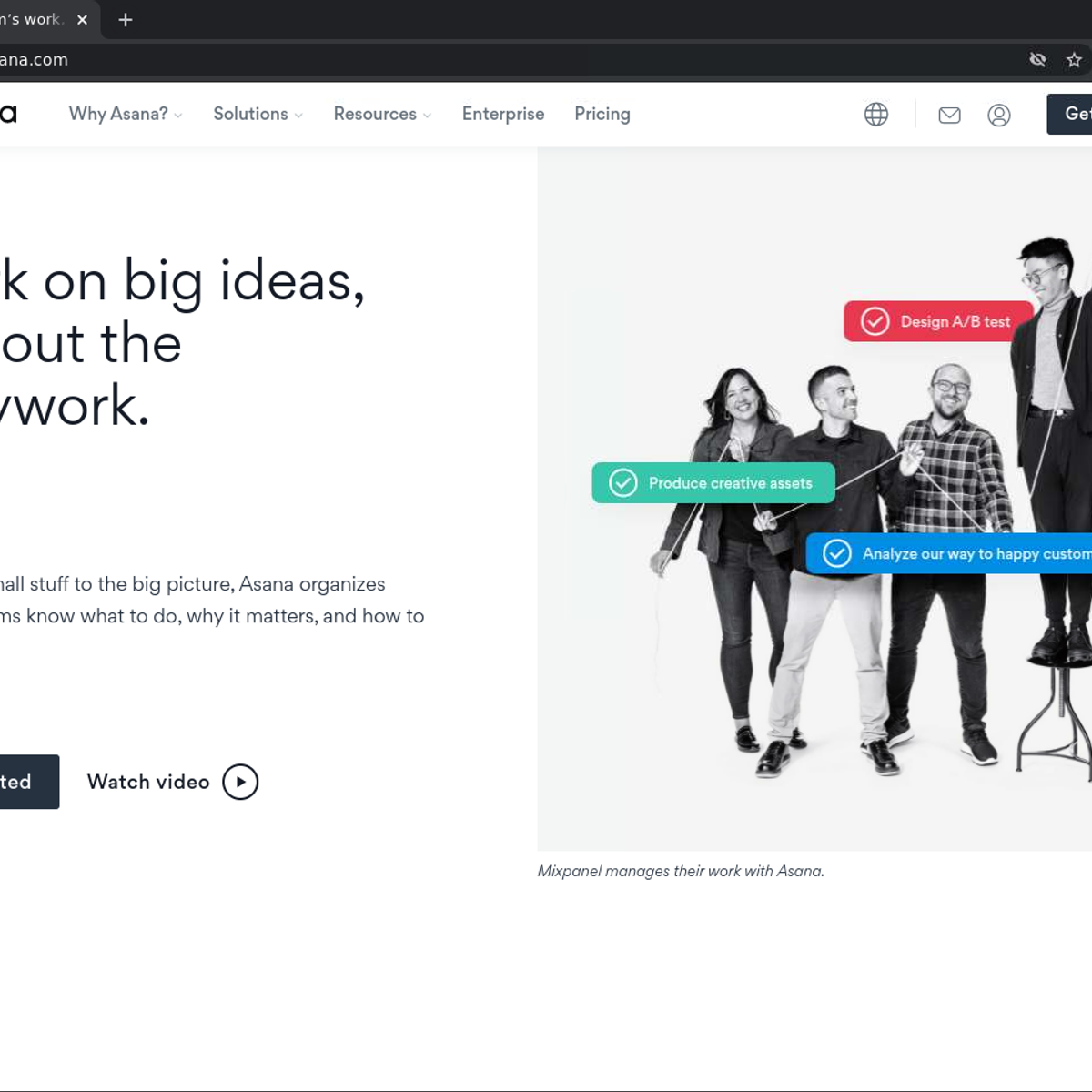Marketing Manager
Marketing Manager: Shaping Brands and Driving Growth
A Marketing Manager plays a pivotal role in shaping a company's public image and driving its growth. At its core, this role involves planning, directing, and coordinating marketing efforts to promote products, services, or the organization itself. They are the strategic minds behind campaigns, tasked with understanding market dynamics, identifying target audiences, and crafting messages that resonate.
This career path often appeals to individuals who blend creativity with analytical thinking. Imagine orchestrating a multi-channel campaign for a new product launch, analyzing data to understand customer behavior, or collaborating with sales and product teams to align strategies. It's a dynamic field where adaptability and a keen understanding of consumer psychology are essential for success. For those intrigued by the intersection of business strategy, communication, and market trends, becoming a Marketing Manager offers a challenging and rewarding journey.
What is a Marketing Manager?
Understanding the scope and function of a Marketing Manager is the first step toward considering this career path. This section clarifies the role's fundamental purpose and context within an organization.
Defining the Role and Its Core Purpose
A Marketing Manager is fundamentally responsible for developing and executing strategies that attract customers and build brand awareness. Their primary goal is to increase demand for a company's offerings, ultimately contributing to revenue growth and market share. This involves overseeing various marketing activities, from initial market research to campaign analysis.
They act as guardians of the brand, ensuring consistent messaging and positioning across all channels. Marketing Managers translate business objectives into actionable marketing plans, identifying key performance indicators (KPIs) to measure success and guide future efforts. They are crucial in bridging the gap between the company and its potential customers.
Think of them as conductors of an orchestra, ensuring all marketing instruments – advertising, public relations, digital marketing, content creation – play in harmony to achieve a common goal. Their work directly impacts how a company is perceived and its ability to compete effectively in the marketplace.
Key Industries and Sectors
Marketing Managers are essential across nearly every industry imaginable. Technology companies rely heavily on them to launch new software and hardware, building hype and educating consumers. Consumer goods companies need them to differentiate products on crowded shelves and build brand loyalty through compelling storytelling.
The healthcare sector employs Marketing Managers to communicate services to patients and healthcare providers, navigating complex regulations. Financial services firms use them to build trust and explain intricate products. Non-profit organizations also require skilled Marketing Managers to raise awareness, attract donors, and promote their missions effectively.
From entertainment and hospitality to manufacturing and education, the need for strategic marketing guidance is universal. This wide applicability means Marketing Managers can often find opportunities aligned with their personal interests or industry expertise, making it a versatile career choice. You can explore opportunities across various sectors by browsing relevant courses on Business and Marketing.
Typical Placement in Organizational Hierarchy
The position of a Marketing Manager typically sits within the middle management layer of an organization's marketing department. They often report to a Marketing Director, Vice President of Marketing, or Chief Marketing Officer (CMO), depending on the company's size and structure.
Marketing Managers frequently supervise a team of marketing specialists, such as digital marketers, content creators, social media coordinators, or market research analysts. They coordinate the efforts of this team, delegate tasks, and provide guidance to ensure marketing objectives are met.
They also collaborate extensively with other departments, including sales, product development, finance, and public relations. This cross-functional interaction is vital for aligning marketing strategies with overall business goals and ensuring smooth campaign execution. Understanding this placement helps clarify the scope of responsibility and interaction expected in the role.
Key Responsibilities and Daily Tasks
What does a Marketing Manager actually do? This section delves into the practical, day-to-day activities and core responsibilities that define the role, offering a clearer picture of the work involved.
Developing and Executing Campaigns
A significant part of a Marketing Manager's job involves conceptualizing, planning, and implementing marketing campaigns. This starts with understanding the campaign's objective – whether it's launching a new product, increasing brand awareness, generating leads, or driving sales.
They work with their team to develop creative concepts, select appropriate marketing channels (digital, print, events, etc.), define target audiences, and craft key messages. Execution involves coordinating timelines, managing resources, and overseeing the creation of marketing materials like ads, emails, social media posts, and website content.
Post-launch, the Marketing Manager monitors campaign performance, analyzing data to see what's working and what isn't. They make adjustments as needed to optimize results and ensure the campaign meets its goals within the allocated budget and timeframe. This iterative process of planning, executing, and refining is central to the role.
These courses offer insights into planning and executing effective marketing strategies and campaigns.
Managing Budgets and Analyzing ROI
Marketing Managers are entrusted with significant budgets and are accountable for using these resources effectively. They must develop detailed budgets for campaigns and ongoing marketing activities, allocating funds across different channels and tactics.
A critical responsibility is tracking expenditures against the budget and ensuring financial discipline. More importantly, they must analyze the return on investment (ROI) for marketing initiatives. This involves measuring the revenue generated or other key outcomes (like lead generation or brand awareness lift) against the cost of the marketing efforts.
Using data analytics tools and techniques, they assess the effectiveness of different strategies and channels to determine where marketing spend yields the best results. This data-driven approach informs future budget allocation and helps justify marketing expenditures to senior management.
Understanding financial aspects and analytics is crucial for Marketing Managers. These courses provide foundational knowledge in marketing analytics and budget management.
Coordinating with Cross-Functional Teams
Marketing rarely operates in isolation. Marketing Managers spend considerable time collaborating with colleagues across various departments. They work closely with the sales team to ensure marketing efforts generate qualified leads and that both teams have consistent messaging.
Collaboration with product development teams is essential for understanding product features, target markets, and launch timelines. They might work with the finance department on budget approvals and ROI reporting, and with public relations for cohesive external communication.
Effective communication, negotiation, and relationship-building skills are vital for managing these interactions. Marketing Managers must champion marketing initiatives internally and ensure alignment with broader company objectives, often navigating competing priorities and perspectives.
Developing strong collaboration and communication skills is essential. These courses focus on teamwork and effective communication in a business context.
Overseeing Market Research and Analysis
Understanding the market landscape is fundamental to effective marketing. Marketing Managers oversee or conduct market research to identify customer needs, preferences, and behaviors. This includes analyzing competitor strategies, market trends, and potential opportunities or threats.
They might utilize various research methodologies, such as surveys, focus groups, interviews, and data analysis. Interpreting research findings allows them to make informed decisions about product positioning, target audience segmentation, messaging, and campaign strategy.
Staying current with market dynamics and consumer sentiment is an ongoing process. This analytical aspect of the role ensures that marketing efforts are relevant, targeted, and have a higher likelihood of success. Grounding strategies in solid research is key to navigating the complexities of the modern marketplace.
These courses delve into market research methodologies and understanding consumer behavior.
Essential Skills for Marketing Managers
Success in a Marketing Manager role requires a blend of technical expertise, strategic thinking, and interpersonal abilities. This section highlights the key competencies aspiring and current managers need to cultivate.
Digital Marketing Proficiency
In today's digitally-driven world, proficiency in digital marketing is non-negotiable. Marketing Managers must understand various online channels and tactics, including Search Engine Optimization (SEO), Pay-Per-Click (PPC) advertising, social media marketing, content marketing, and email marketing.
Familiarity with digital marketing tools for analytics (like Google Analytics), CRM (like HubSpot or Salesforce), marketing automation, and social media management is crucial. They need to interpret digital performance data to optimize campaigns and demonstrate ROI.
Even if they manage specialists who handle the day-to-day execution, Marketing Managers need a strong strategic understanding of how digital channels work together to achieve business goals. The digital landscape evolves rapidly, requiring continuous learning to stay current.
These courses cover essential digital marketing skills and platforms.
Leadership and Communication Abilities
Marketing Managers lead teams and collaborate across departments, making strong leadership and communication skills essential. They need to inspire and motivate their team, delegate effectively, and foster a collaborative environment.
Clear communication is vital for presenting marketing plans to executives, coordinating with other teams, providing feedback to team members, and crafting compelling messages for external audiences. This includes written, verbal, and presentation skills.
They must be able to articulate complex ideas clearly and persuasively, negotiate resources, and manage stakeholder expectations. Building strong relationships both internally and externally is key to navigating the complexities of the role and driving successful outcomes.
These resources focus on developing leadership presence and communication effectiveness.
Data-Driven Decision Making
Modern marketing relies heavily on data. Marketing Managers must be comfortable working with numbers and analytics to measure performance, gain insights, and make informed decisions. This involves defining relevant KPIs, collecting data from various sources, and using analytical tools to interpret results.
They use data to understand customer behavior, measure campaign effectiveness, identify market trends, and optimize marketing spend. Rather than relying solely on intuition, data provides objective evidence to guide strategy and justify decisions.
Skills in data visualization and reporting are also important for communicating findings to stakeholders who may not have a technical background. The ability to translate data into actionable insights is a hallmark of an effective Marketing Manager.
These courses emphasize the use of data and analytics in marketing decision-making.
Creative and Strategic Problem-Solving
While data is crucial, marketing also requires creativity and strategic thinking. Marketing Managers need to develop innovative campaigns and messaging that capture attention and differentiate their brand in a crowded marketplace.
They must be adept at identifying challenges and devising creative solutions, whether it's overcoming budget constraints, responding to competitor actions, or adapting to changing market conditions. Strategic thinking involves seeing the bigger picture, understanding how marketing fits into overall business goals, and planning for the long term.
This blend of creativity and strategy allows Marketing Managers to develop unique approaches, anticipate market shifts, and find new ways to connect with customers. Balancing analytical rigor with innovative thinking is key to sustained success.
These resources focus on fostering creativity, innovation, and strategic thinking.
Educational Pathways to Becoming a Marketing Manager
While there isn't one single required path, certain educational backgrounds and qualifications are common among Marketing Managers. Understanding these pathways can help you plan your educational journey.
Common Undergraduate Degrees
A bachelor's degree is typically the minimum educational requirement for entry-level marketing roles, which can eventually lead to a management position. Degrees in Marketing are naturally a direct fit, providing foundational knowledge in consumer behavior, market research, advertising, and strategy.
Business Administration or Management degrees also offer relevant coursework in finance, economics, and organizational behavior, providing a broad business context crucial for management roles. Communications or Public Relations degrees equip students with strong writing, presentation, and media relations skills, which are highly valuable in marketing.
Other relevant fields include Economics, Psychology, Sociology, or even Statistics, especially for roles emphasizing market analysis and data interpretation. Ultimately, demonstrating relevant skills and knowledge is often more important than the specific degree title.
These foundational courses cover core marketing and business principles often taught in undergraduate programs.
Graduate Degrees and Specializations
While not always required, a Master of Business Administration (MBA) degree is a common credential for Marketing Managers, particularly in larger corporations or for those seeking senior leadership roles. An MBA provides advanced business acumen, strategic thinking skills, and leadership training.
Many MBA programs offer specializations in Marketing, allowing students to deepen their expertise in areas like digital marketing, brand management, or marketing analytics. Other relevant master's degrees include a Master of Science (MS) in Marketing, Marketing Analytics, or Integrated Marketing Communications.
A graduate degree can enhance career prospects, potentially leading to faster advancement and higher earning potential. It demonstrates a commitment to the field and provides a deeper, more strategic understanding of business and marketing principles.
These courses reflect the type of advanced strategic thinking often covered in graduate programs.
Professional Certifications and Continuing Education
Beyond formal degrees, professional certifications can demonstrate specialized expertise and commitment to staying current in the rapidly evolving marketing field. Certifications are available in various areas, such as digital marketing, content marketing, social media marketing, SEO, and marketing analytics.
Organizations like the American Marketing Association (AMA), Digital Marketing Institute (DMI), and HubSpot Academy offer well-regarded certifications. Completing relevant online courses and earning certificates can also bolster a resume and provide practical skills, especially in specific tools or platforms.
Continuing education is crucial for Marketing Managers. Attending industry conferences, participating in webinars, reading trade publications, and taking refresher courses helps managers stay informed about the latest trends, technologies, and best practices. Lifelong learning is essential in this dynamic profession. Platforms like OpenCourser provide access to a vast library of courses for continuous skill development.
These courses can help you prepare for certifications or specialize in key marketing areas.
Alternative Routes and Career Transitions
A traditional educational path isn't the only way to become a Marketing Manager. Many successful professionals enter the field through alternative routes or transition from related careers, bringing valuable diverse experiences.
Transitioning from Related Roles
Individuals working in adjacent fields often possess transferable skills that make a transition into marketing management feasible. Sales professionals, for example, have deep customer understanding and experience with revenue generation, which are valuable in marketing.
Content creators, writers, or graphic designers develop strong communication and creative skills, essential for developing marketing materials and campaigns. Public relations specialists excel at messaging, brand building, and media relations, all relevant to broader marketing strategies.
Data analysts or business analysts might transition into marketing analytics roles and potentially move into management, leveraging their quantitative skills. Recognizing and highlighting these transferable skills is key when pivoting into a marketing management career.
Exploring roles like Brand Manager or Social Media Manager can also be stepping stones.
Building a Portfolio Through Projects
For those lacking direct marketing experience, building a portfolio of work can be a powerful way to demonstrate capabilities. This can involve taking on freelance marketing projects for small businesses or non-profits, often found through networking or online platforms.
Volunteering marketing services for a cause you believe in can also provide practical experience and tangible results to showcase. Starting a personal project, like a blog or a social media channel focused on a specific niche, allows you to practice marketing skills and demonstrate initiative.
Documenting the strategies used, the execution process, and especially the measurable results achieved in these projects is crucial. A strong portfolio can sometimes outweigh a lack of formal experience or a traditional degree, proving your ability to deliver marketing outcomes.
These courses offer hands-on projects to build practical skills and portfolio pieces.
Leveraging Transferable Skills
Many skills gained in seemingly unrelated industries are highly valuable in marketing management. Project management experience, for instance, is directly applicable to managing marketing campaigns, which involve timelines, budgets, and coordinating resources.
Strong analytical and problem-solving skills, developed in fields like engineering or finance, are crucial for data analysis and strategic planning in marketing. Customer service experience provides deep insights into customer needs and communication strategies.
If you're considering a career change, take inventory of your existing skills. Frame your experience in terms that highlight competencies relevant to marketing, such as communication, strategic thinking, data analysis, creativity, and leadership. Emphasizing these transferable skills during job applications and interviews can bridge the gap between your past roles and a future in marketing management. This path requires persistence, but it's achievable with strategic positioning and skill development.
Career Path and Advancement
Understanding the typical career trajectory for a Marketing Manager helps in setting realistic expectations and planning for long-term growth within the field.
Typical Promotion Timeline and Path
Entry into marketing often begins with roles like Marketing Coordinator, Marketing Assistant, or specialist positions (e.g., Social Media Specialist, SEO Analyst). After gaining several years of experience (typically 3-5 years) and demonstrating strong performance and potential, individuals may advance to an Assistant Marketing Manager or Marketing Manager role.
The timeline can vary based on individual performance, company size, industry, and educational background. Consistent achievement of marketing goals, development of leadership skills, and a proactive approach to learning are key factors influencing promotion speed.
From Marketing Manager, further advancement often leads to roles like Senior Marketing Manager, Marketing Director, or Group Marketing Manager, typically involving broader strategic responsibilities, larger budgets, and management of multiple teams or product lines. This progression usually requires 7-10+ years of cumulative experience.
Management vs. Specialist Tracks
As marketing professionals gain experience, they may face a choice between a management track and a specialist track. The management track, leading to Marketing Manager and beyond, involves increasing responsibility for strategy, budgets, and leading teams.
Alternatively, some individuals prefer to deepen their expertise in a specific area, pursuing a specialist track. This could involve becoming a senior expert in digital analytics, SEO strategy, content marketing, or brand strategy, often holding titles like Senior SEO Strategist or Principal Brand Analyst.
Both tracks offer valuable career paths. The choice depends on individual strengths, interests, and career goals. Some may find fulfillment in leading teams and shaping overall strategy, while others prefer honing deep technical expertise in a particular marketing discipline.
These courses cover skills relevant to both management and specialist paths.
Transitioning to Executive Roles
Experienced Marketing Directors may eventually progress to executive leadership positions, such as Vice President (VP) of Marketing or Chief Marketing Officer (CMO). These roles involve setting the overall marketing vision for the entire organization, managing large departments and budgets, and contributing significantly to the company's overall business strategy.
Reaching this level typically requires extensive experience (often 15+ years), a proven track record of delivering significant business results through marketing, strong leadership capabilities, and broad business acumen extending beyond marketing.
Executive roles demand a deep understanding of market dynamics, financial performance, and competitive strategy. Networking, mentorship, and sometimes advanced degrees like an MBA can play a role in achieving these senior positions.
Industry-Specific Advancement Patterns
While the general trajectory is similar, advancement patterns can differ by industry. In fast-paced sectors like technology, rapid growth can sometimes lead to quicker promotions for high-performing individuals, though competition is also intense.
In more traditional industries like manufacturing or finance, advancement might follow a more structured path with clearer hierarchical steps. Agency settings offer another distinct path, where progression might involve managing larger client accounts or leading specific service departments.
Understanding the nuances of your chosen industry can help tailor your career development efforts. Networking within your industry and seeking mentors who understand its specific dynamics can provide valuable guidance for navigating advancement opportunities.
Emerging Trends Shaping Marketing Management
The field of marketing is constantly evolving, driven by technological advancements, changing consumer behavior, and global shifts. Staying aware of these trends is crucial for Marketing Managers to remain effective.
The Rise of AI in Marketing Automation and Insights
Artificial Intelligence (AI) is rapidly transforming marketing. AI-powered tools are automating repetitive tasks like email marketing, ad bidding, and basic customer service through chatbots. This frees up managers to focus on higher-level strategy and creativity.
AI also enhances data analysis capabilities, enabling more sophisticated customer segmentation, predictive modeling of consumer behavior, and personalization at scale. Marketing Managers need to understand how to leverage AI tools effectively and ethically to gain deeper insights and improve campaign performance.
While AI offers powerful capabilities, it also requires managers to develop new skills in prompt engineering, data interpretation, and overseeing AI-driven initiatives. Familiarity with AI applications in marketing is becoming increasingly important.
These courses explore the intersection of AI and marketing.
Ethical Considerations and Data Privacy
With the increasing use of data in marketing comes greater responsibility. Growing consumer awareness and regulations like GDPR and CCPA place a strong emphasis on ethical data usage and privacy protection. Marketing Managers must ensure their teams collect, store, and use customer data responsibly and transparently.
This involves understanding privacy laws, implementing compliant practices, and being mindful of ethical considerations in targeting and personalization. Building customer trust through ethical data handling is becoming a critical aspect of brand reputation and long-term success.
Managers need to foster a culture of ethical marketing within their teams, balancing the drive for results with respect for consumer privacy and rights. Navigating these complexities requires ongoing attention and adherence to evolving standards.
Globalization and Remote Marketing Teams
Businesses increasingly operate in a global marketplace, requiring Marketing Managers to develop strategies that resonate across different cultures and regions. This involves understanding cultural nuances, adapting messaging and campaigns for local markets, and potentially managing multilingual marketing efforts.
The rise of remote work has also impacted team structures. Marketing Managers may find themselves leading geographically dispersed teams, requiring strong virtual communication, collaboration tools, and management techniques suited for remote environments.
Successfully managing global campaigns and remote teams demands cultural sensitivity, adaptability, and proficiency in digital collaboration tools. This trend opens up opportunities but also adds layers of complexity to the Marketing Manager role.
These courses touch upon global marketing strategies and cultural considerations.
Sustainability and Purpose-Driven Marketing
Consumers, particularly younger generations, increasingly expect brands to demonstrate social and environmental responsibility. This trend is driving the rise of sustainability and purpose-driven marketing, where companies highlight their positive impact beyond just profits.
Marketing Managers may be involved in developing campaigns that showcase a company's commitment to sustainability, ethical sourcing, or social causes. Authenticity is key; consumers are quick to detect "greenwashing" or disingenuous claims.
Integrating purpose into the brand narrative requires a genuine commitment from the organization, and Marketing Managers play a role in communicating these efforts effectively and transparently. This shift reflects a broader societal expectation for businesses to contribute positively to the world.
This course explores marketing with an environmental focus.
Navigating the Global Marketing Landscape
As businesses expand internationally, Marketing Managers often need to adapt their strategies to diverse global markets. This requires cultural awareness and strategic flexibility.
Cultural Adaptation in Campaigns
What works in one culture may not resonate, or could even be offensive, in another. Marketing Managers overseeing international campaigns must invest time in understanding cultural norms, values, communication styles, and consumer behaviors in each target market.
This involves more than just translating language; it requires adapting imagery, color palettes, messaging themes, and even product features to align with local preferences and sensitivities. Effective cross-cultural marketing requires research, local partnerships, and a willingness to deviate from a one-size-fits-all approach.
Failure to adapt culturally can lead to ineffective campaigns, damaged brand reputation, and wasted resources. Successful global marketers embrace cultural diversity as an opportunity to connect authentically with varied audiences.
Regional Variations in Demand and Strategy
Market demand, competitive landscapes, and preferred marketing channels can vary significantly from one region to another. A product highly sought after in North America might face lukewarm reception in Asia without adjustments. Digital adoption rates and preferred social media platforms also differ globally.
Marketing Managers need to analyze regional market data to tailor their strategies accordingly. This might involve adjusting pricing, distribution channels, promotional tactics, or even product features to suit local conditions and consumer purchasing power.
Developing regional marketing plans often requires input from local teams or partners who possess intimate knowledge of their specific market dynamics. Flexibility and a localized approach are crucial for maximizing success across diverse geographical areas.
Multilingual Marketing Approaches
Operating globally often necessitates communicating in multiple languages. Marketing Managers may oversee the translation and localization of websites, marketing materials, and campaigns to ensure they are linguistically accurate and culturally appropriate.
This goes beyond simple translation to "transcreation" – adapting the message's intent, style, and tone for the target language and culture. Managing multilingual campaigns requires careful planning, quality control processes, and potentially working with specialized translation and localization agencies.
Ensuring linguistic consistency and quality across all touchpoints is vital for maintaining brand credibility and effectively reaching non-English speaking audiences. Proficiency in multiple languages can be an asset for Marketing Managers working in global roles.
Challenges of Managing Remote International Teams
Leading marketing teams spread across different countries and time zones presents unique challenges. Effective communication requires leveraging various digital tools and being mindful of time differences when scheduling meetings.
Building team cohesion and a shared culture can be more difficult remotely. Managers need to foster trust, ensure clear expectations, and create opportunities for virtual team building and collaboration despite geographical separation.
Understanding different work cultures and communication styles within the team is also important. Adapting leadership approaches to accommodate cultural diversity and leveraging tools designed for remote collaboration are key skills for managing global, distributed marketing teams.
Frequently Asked Questions about Marketing Managers
Here are answers to some common questions individuals have when considering a career as a Marketing Manager.
What are the typical salary expectations?
Salary expectations for Marketing Managers vary significantly based on factors like years of experience, industry, company size, geographic location, and educational background. According to the U.S. Bureau of Labor Statistics, the median annual wage for advertising, promotions, and marketing managers was $159,780 in May 2023. However, entry-level managers or those in smaller organizations or lower cost-of-living areas might start lower, while senior managers in high-demand industries or major metropolitan areas can earn considerably more.
Experience plays a major role; salaries generally increase with seniority and proven track records. Performance bonuses and stock options can also significantly impact total compensation, particularly in larger corporations or successful startups.
It's advisable to research salary benchmarks specific to your industry, location, and experience level using resources like Glassdoor, Payscale, or industry-specific salary surveys from firms like Robert Half for the most accurate expectations.
How valuable are industry certifications compared to a degree?
Both degrees and certifications hold value, but they serve slightly different purposes. A bachelor's or master's degree provides foundational knowledge, theoretical understanding, critical thinking skills, and often, broader business context. Degrees are frequently prerequisites for management roles, especially in larger, more traditional companies.
Certifications, on the other hand, typically focus on specific, practical skills and tools relevant to current industry practices (e.g., Google Ads, HubSpot Inbound Marketing, Digital Marketing Institute). They demonstrate specialized expertise and a commitment to staying updated in a rapidly changing field. Certifications can be particularly valuable for career changers or those looking to specialize in high-demand areas like digital marketing or analytics.
Ideally, a combination of formal education and relevant certifications offers the strongest profile. A degree provides the base, while certifications demonstrate current, applicable skills. The relative importance can vary by employer and specific role requirements.
Is it possible to transition from a creative role to management?
Yes, transitioning from a creative role (like graphic designer, copywriter, or content creator) to a Marketing Manager position is quite common. Creative professionals develop strong communication skills, an understanding of branding, and expertise in creating engaging content – all valuable assets in marketing.
The transition typically requires developing additional skills, particularly in strategic thinking, data analysis, budget management, and leadership. Gaining experience in project management, contributing to campaign strategy discussions, and seeking opportunities to mentor junior team members can help bridge the gap.
Pursuing additional education, such as online courses in marketing strategy, analytics, or management, can also facilitate the transition. Highlighting transferable skills and demonstrating an understanding of the broader business context of marketing are key when seeking management opportunities.
What impact will AI have on job security for Marketing Managers?
AI is expected to automate many routine marketing tasks, potentially shifting the responsibilities of marketing professionals. Tasks like basic data reporting, email sequence generation, and ad optimization may become increasingly automated. However, AI is unlikely to eliminate the need for Marketing Managers entirely.
Instead, the role is likely to evolve. Managers will need to focus more on strategic thinking, creative campaign development, interpreting complex AI-driven insights, managing AI tools, ensuring ethical AI use, and overseeing brand strategy – areas where human judgment and creativity remain crucial.
Those who adapt by learning how to leverage AI tools effectively and focus on developing strategic, creative, and leadership skills are likely to find their roles enhanced rather than replaced. Continuous learning and adaptability will be key to navigating the impact of AI on the profession.
What are the pros and cons of freelance vs. corporate marketing careers?
A corporate Marketing Manager role typically offers stability, a consistent salary, benefits, access to larger budgets and resources, and clear career progression paths within the organization. However, it may involve more bureaucracy, less flexibility, and potentially slower decision-making processes.
Freelance marketing offers greater flexibility in terms of work hours and location, the ability to choose projects and clients, and potentially higher earning potential for established consultants. Downsides include income instability, the need to constantly find new clients, managing administrative tasks (invoicing, taxes), and the lack of employer-sponsored benefits.
Some marketers blend both, working full-time while taking on occasional freelance projects, or transition between corporate roles and freelancing at different career stages. The best path depends on individual priorities regarding stability, autonomy, and risk tolerance.
What are the typical requirements for entry-level marketing positions?
Entry-level marketing roles, such as Marketing Coordinator or Assistant, typically require a bachelor's degree in Marketing, Business, Communications, or a related field. Strong communication (written and verbal), organizational, and basic analytical skills are essential.
Internship experience in marketing or related areas is highly valued and often expected. Familiarity with digital marketing concepts (social media, basic SEO) and common software tools (Microsoft Office suite, particularly Excel and PowerPoint; basic knowledge of CRM or email marketing platforms is a plus) is usually required.
Employers look for candidates who are eager to learn, proactive, detail-oriented, and possess a foundational understanding of marketing principles. Demonstrating enthusiasm for the field and showcasing any relevant projects or experiences (even from coursework or extracurricular activities) can strengthen an application.
Embarking on a career as a Marketing Manager is a journey that combines strategic insight with creative execution. It requires continuous learning, adaptability, and a passion for understanding markets and connecting with audiences. Whether you are starting your educational path, considering a career pivot, or looking to advance within the field, the resources and insights provided here aim to equip you with a realistic and comprehensive view of this dynamic profession. With dedication and the right skills, a rewarding career in marketing management is well within reach.























































